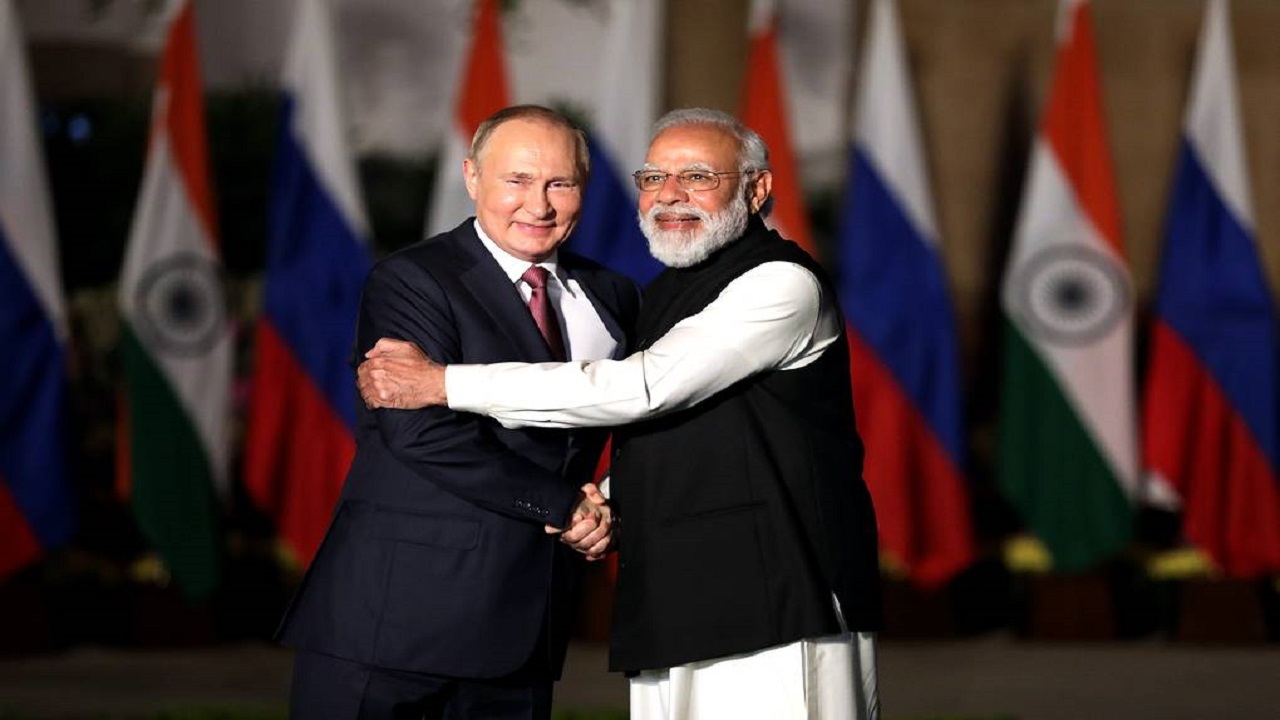Speaking in an interview with the website of the Strategic Council on Foreign Relations, Pir Mohammad Mollazehi, referred to the Kremlin press release regarding the Russian President’s visit to India and Putin’s consultation with Prime Minister Modi on the further development of relations and strategic partnership between the two countries, and said: Given the US policy of siege and pressure on China, as well as the 90,000-square-kilometer territorial dispute between India and China, the United States hopes to fully absorb Delhi within the framework of the Quad Treaty, which includes India, Australia, Japan and the United States and be able to use it to besiege China.
Saying that Russia and India had improved their relations to strategic ones since 2000, and that they had reached the level of “special and privileged strategic” relations in 2010, he noted: But India has traditionally had a balanced view of global sources of power; it has now become a power, and it is not the case that other countries can use it as a tool for their own interests; India pursues its national interests and remains committed to the principles of the era it led the Non-Alignment and based on that, it was able to establish a balanced relationship with East and West.
The expert on subcontinent affairs said: Even though India has now become closer to the United States because of its differences with China and Pakistan, it does not mean that whatever the United States dictates India will accept; just as the United States was strongly opposed to receiving the S300, S400, or more recently the S500 from Russia, but India entered that route.
Saying that India maintains its independence in terms of the diversity of its arms sources, Mollazehi added: Just as India buys arms from the United States, Britain, France, and Israel, it also considers Russia as an arms-selling country and maintains its traditional ties, especially since the Russians are more convenient in providing both arms and technology to India, as we see in the case of the assembly of Russian planes by India.
According to the analyst of subcontinent affairs, the importance of Putin’s visit to India is to help maintain India’s balanced position, to sell arms, and to consult on important regional and international issues, especially on Afghanistan affairs.
Common interests of India and Russia
He noted that Russia and India have common security concerns about religious extremism and referred to the two countries membership in the Shanghai Cooperation Organization, the BRICS and the G20, and their close cooperation, adding: Russia and India share a common strategy regarding Shanghai and are gradually promoting it as a force that will take military form in the future. From this angle, Putin’s trip is very important; because India and Russia have many common interests, and from the Russians’ point of view, the most important thing about India is that it is not fully be absorbed by the United States.
Orientalism of India?
Mollazehi, meanwhile, added: However, the Orientalist approach to India is inconceivable; because that country itself is now considered as a power. India both considers the idea of polarization of world power and the multipolar system and sees itself as one of the poles of power; but because it feels concerns from China, and in which it shares the concerns of the United States and Europe, associates with them.
Referring to the two countries’ decision for new strategic cooperation in the Far East, he said: According to media reports, Putin’s visit to India not only coincides with the delivery of the first S-400 surface-to-air missile systems, but also talks on the possibility of S-500 and S-550 advanced missile systems sales. In fact, if the negotiations succeed, India may be the first foreign buyer of Russia’s S-500 and S-550 air defense systems.
Impacts of behind-the-scenes rivalries between Russia and China
The expert on subcontinent affairs continued: In this context, behind-the-scenes rivalries between Russia and China should also be considered. The Russians, too, are worried about the speed of China’s progress, thinking that if they equip India militarily, there will be a balance of power between India and China that will benefit the Russians. Of course, China prioritizes restraint by considering such movements and carefully examining the consequences of those relationships.
Recalling the deep military relations between India and Russia, as well as cooperation in the field of energy, communications and space between the two countries, Mollazehi stated: India has purchased 70 billion dollars in weapons from Russia since 1991 and new arms deals, with a value of 15 billion dollars was signed between the two countries between 2018 and 2019. In addition, Russia has competitive arms sales with other arms manufacturers.
Saying that India’s defense and civil nuclear sectors have been built by Russia, he said: The United States is not willing as Russia to sell advanced weapons to India. Therefore, India is also realizing the benefits of a strategic relationship with Russia.










0 Comments